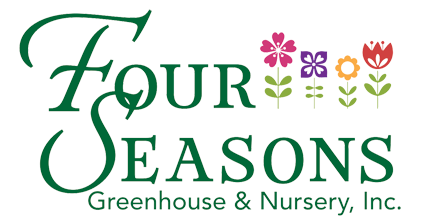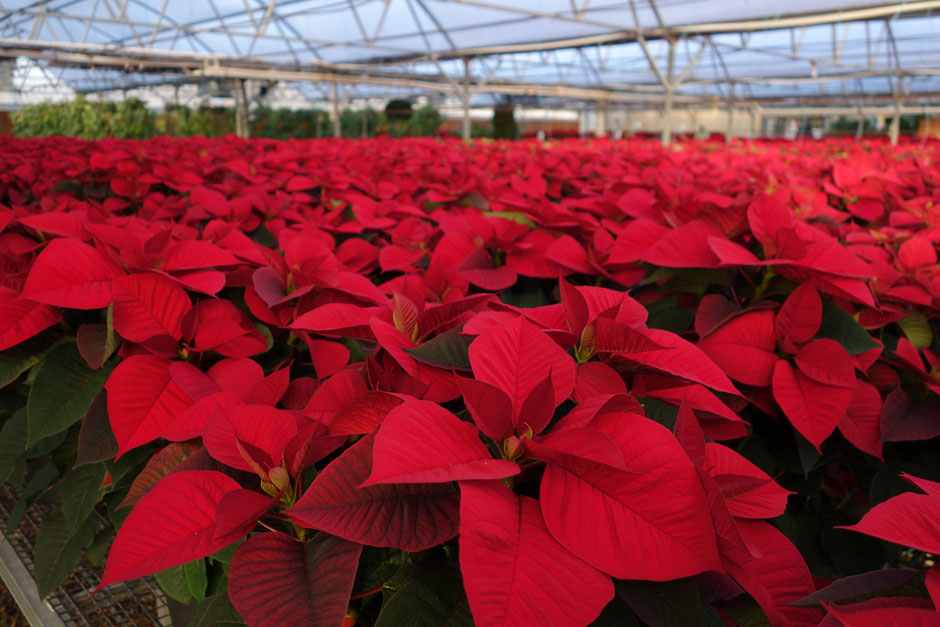Vic likes to do it at the garden center for shock value. Pop a poinsettia bract into his mouth and eat it, because we often hear at this time of year, “Oh, your poinsettias are lovely but I can’t have one because they’re poisonous and I have small children/cats/dogs, etc.” I’ve been on a crusade for years and I want to set the record straight. The myth that poinsettias are poisonous simply isn’t true.
Like many myths, this one has several versions that got started many years ago but just won’t go away. One claims that over 100 years ago a small child was found dead next to a wild poinsettia plant. With no other plausible explanation, townspeople blamed the plant for the little boys death. Another dates back to the 1919 death of a two year old little girl whose father was an Army officer at Fort Shafter in Honolulu. In that area, poinsettias grow large and wild and her parents believed she had eaten some which caused her death.
Fortunately, there has been quite a bit of research done over the years and the conclusion is unanimous – poinsettias are not poisonous. The national information center for poison control centers, POISINDEX, says that a child would have to ingest 500-600 poinsettia leaves to exceed the experimental doses in which no toxicity was found. Researchers at Ohio State University did extensive tests in the 1970’s that exonerated the poinsettia as well. At the worst, if accidentally swallowed, it’s been known to cause mild irritation, nausea, vomiting and diarrhea. While these conditions certainly aren’t desirable, they are not toxic either.
There is one issue you should be aware of in regards to having poinsettias around your home however. The sap that comes off of the plant when a bract or branch is broken is white and milky and a few people have been known to have it irritate their skin as a form of contact dermatitis and cause itching. If you are careful not to touch your eyes or mouth after handling, then wash your hands thoroughly, your chances of having any problems are very minimal. The Mayo Clinic has published information that states if you are allergic to latex you may have a reaction to poinsettias too since they share some of the same proteins. If you are allergic to avocados, bananas, chestnuts, kiwis, and passion fruit you may also have a greater chance of being allergic to poinsettias as well.
Perhaps the myths persist because its name poinsettia sounds similar to poison and although it is a non-food product and certainly not intended for consumption, it is absolutely not poisonous. So purchase your plants with the peace of mind knowing that neither small children or animals will be harmed by this lovely holiday decoration.

